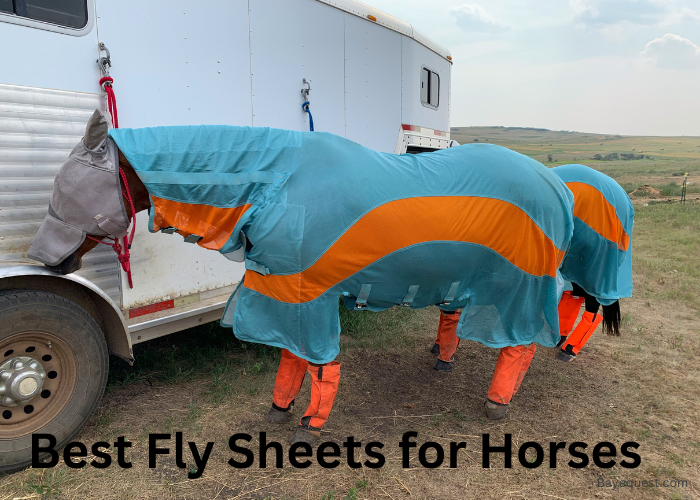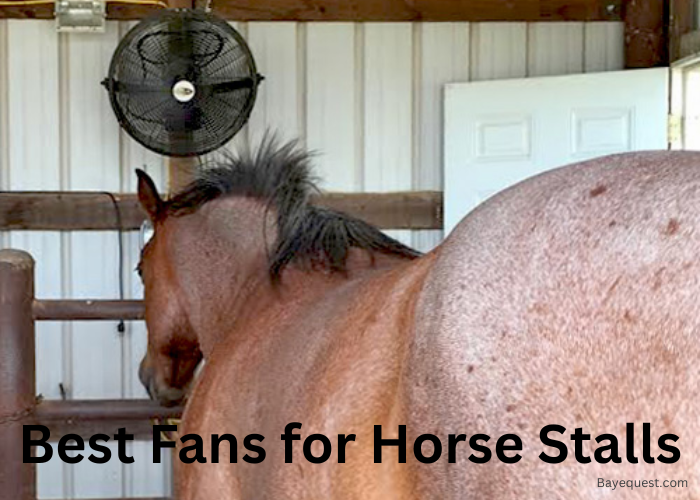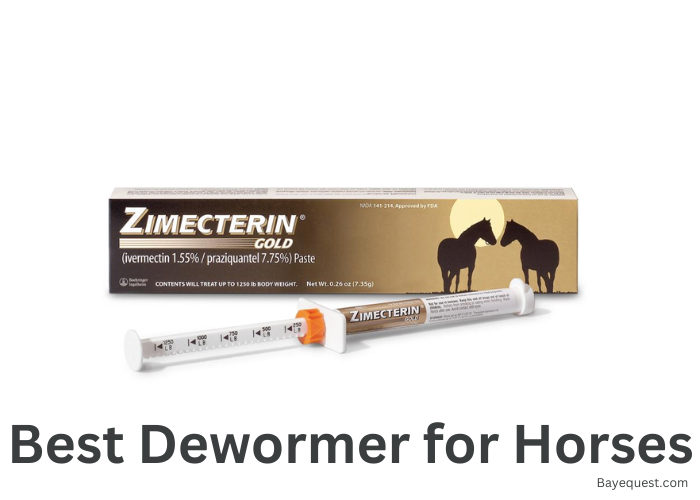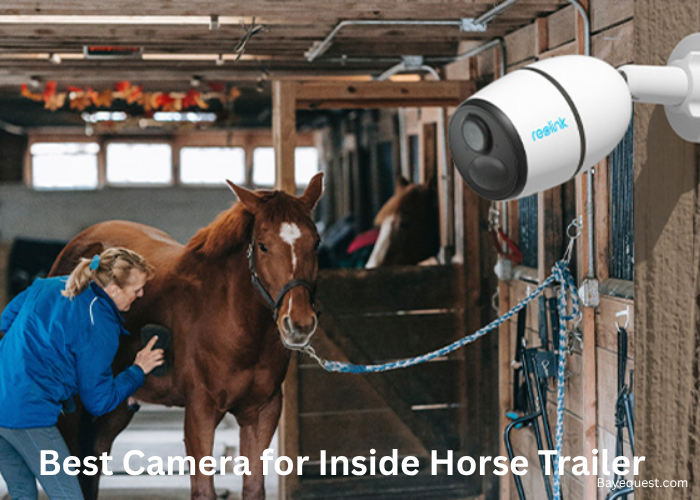Did you know a single vet visit for a horse can cost as much as $10,000? Protecting your equine companion isn’t just about love; it’s a smart financial move.
With years of experience in equine care, I understand the ins and outs of horse ownership. Whether your horse is a spirited jumper or a cherished pet, the right insurance ensures their health and your peace of mind.
Ready to navigate the best equine insurance options? Let’s jump into the top picks to keep your hoofed friend safe and sound.
Best Horse Insurance Companies – Key Takeaway
| Company | Plan highlights |
| ASPCA Horse Insurance | – Annual coverage limits: $3,000 – $7,000- Reimbursement: 70% – 90%- Deductible: $100 – $500 |
| Blue Bridle Insurance | – Tailored to the horse’s value- Covers major medical, mortality, surgeries, specific conditions |
| Broadstone Equine Insurance | – Annual coverage limit: $5,000 – $15,000- Premium: $200 per year- Deductible: $250 – $675 |
| Pet Assure | – Veterinary discount plan- Annual coverage limit: $350 – $1,100- No waiting period |
| Petplan Equine | – Veterinary Fees: Up to $6,100 per condition- Personal Accident: Up to $24,400 |
| Agria Pet Insurance | – Equine Lifetime Lite: $3,660 vet fees cover- Loss of Use: Up to $30,500 |
| The Insurance Emporium | – Vet Fee Cover: Up to $8,540 per incident- Public Liability: Up to $3.66 million |
Types of Horse Insurance Plans
Choosing the right type of coverage for horse health insurance involves understanding the various options available and determining which aligns best with your needs and your horse’s activities.
Here’s a breakdown of the different types of insurance coverage you might consider:
Major medical insurance
This is akin to human health insurance, focusing on covering your horse’s veterinary care in case of illness or injury. Medical insurance usually covers treatments, surgeries, medications, and sometimes diagnostic tests.
Policies can vary in what they offer, so you must review what specific conditions and treatments are covered.
Accident-and-illness insurance
This type of insurance is more specific than major medical insurance. It covers veterinary care if your horse becomes ill or is injured in an accident.
It’s a comprehensive option that ensures you’re covered for unexpected health issues. However, it doesn’t cover routine care or pre-existing conditions.
Mortality insurance
Mortality insurance is life insurance for your horse. It compensates you for the financial loss if your horse dies due to illness, injury, or disease.
Some policies may also offer theft coverage. The cost can vary based on the horse’s value, age, and use.
This type of insurance often serves as a base policy to which you can add other coverage types like major medical or accident-and-illness insurance.
Loss-of-use insurance
Loss-of-use insurance compensates if your horse cannot perform its intended use. This may be due to an illness or injury.
This insurance is particularly relevant for horses used in professional capacities. Getting this coverage can be complex.
It involves extensive vet checks and excludes pre-existing conditions. It’s more common for high-value animals with significant financial stakes.
7 Best Horse Pet Insurance Companies
The following are the best pet insurance for horses:
1. ASPCA Horse Insurance
The American Society for the Prevention of Cruelty to Animals has a pet insurance program with horse coverage. This program is part of their commitment to animal welfare.
The ASPCA’s horse insurance offers a range of coverages, including accident, illness, and wellness, depending on your chosen plan. It also offers vaccine and dental coverage.
- Annual coverage limits: $3,000 – $7,000
- Reimbursement: 70% – 90%
- Deductible: $100 – $500
- Waiting period: 15 days for accidents and illnesses
2. Blue Bridle Insurance
Blue Bridle Insurance specializes in equine insurance and offers a variety of coverages including mortality, major medical, and surgical insurance for horses.
They cater to the specific needs of horse owners, with policies covering a range of scenarios, from vet fees to loss of use. The company prides itself on understanding the unique relationship between horses and their owners.
They cover surgeries and conditions like equine ulcers, colic, pneumonia, Lyme disease, and soft tissue injuries. However, they do not cover preventive care and wellness examinations.
Good thing they can tailor their policies to meet these needs.
- Annual coverage limit: Depends on the horse’s insured value
- Reimbursement: Depends on the underwriter
- Deductible: Depends on the underwriter
- Waiting period: Depends on the underwriter
3. Broadstone Equine Insurance
Broadstone Equine Insurance is known for its comprehensive equine coverage options. These include mortality, major medical, and liability insurance for horse owners, trainers, and facilities.
Broadstone is a go-to source for those in the equine industry seeking specialized coverage. Their policies are designed to protect almost every aspect of horse ownership and equine business operations.
- Annual coverage limit: $5,000 – $15,000
- Covers: 30 days-20 year-old horses
- Reimbursement: Depends on the underwriter
- Premium: $200 per year
- Deductible: $250 – $675
- Waiting period: Depends on the underwriter
4. Pet Assure
While not exclusively focused on horses, Pet Assure offers a veterinary discount plan that includes services for horses. This program allows for a percentage off veterinary bills at participating providers.
It’s an alternative or supplement to traditional insurance, especially for routine care and services not covered by insurance.
They have basic, essential, and premium covers that offer different services depending on your choice. Some benefits include dental care, surgical procedures, vaccines, cancer treatments, routine care, and hospitalizations.
- Annual coverage limit: $350 – $1,100 (depending on the plan)
- Waiting period: None
5. Petplan Equine
Petplan Equine offers horse insurance that covers veterinary fees for illness and injury. They also offer other options, like public liability insurance.
They’re one of the known names in the industry for comprehensive equine insurance.
- Veterinary Fees – Up to $6,100 per condition
- Third-Party Liability – Up to $6.1 million
- Personal Accident – Up to $24,400
- Loss of Use – 100% of the market value of your horse
- Disposal Following Death – Up to $244
- Equipment Cover – Up to $6,100
- Cover for Trailer or Horse-Drawn Vehicle – The cost of repair
6. Agria Pet Insurance
Agria Pet Insurance, with a long history in the pet insurance industry, offers a range of insurance products, including horse coverage.
Their equine insurance likely covers a broad spectrum of needs, from veterinary care to loss and theft. Agria offers customizable policies, allowing you to choose coverage that best fits your needs.
- Equine Lifetime Lite – $3,660 vet fees cover
- Equine Lifetime – $7,935 vet fees cover
- Equine Lifetime Plus – $12,200 vet fees cover
- Death and Theft or Straying – Up to the market value of your horse
- Loss of Use – Up to $30,500
7. The Insurance Emporium
The Insurance Emporium offers various types of insurance, including for horses. Their equine policies include coverage for veterinary fees, loss of use, and theft, among others.
They aim to provide flexible insurance solutions to horse owners, with options to tailor policies through various elective benefits.
- Vet Fee Cover – Up to $8,540 per incident
- Complementary Treatment – $1,220 (inner limit)
- Transportation & Livery – $610 per incident
- Disposal Costs – $366
- Saddlery & Tack – Up to $6,100
- Loss of Use – Up to $18,300
- Public Liability – Up to $3.66 million
- Personal Accident – $27,450
- Dental Treatment – $2,440

Horse Insurance Cover Options
To find the right insurance cover for your horse, here are a few basics you need to understand:
Limited vs. comprehensive cover horse vet fees
Think of limited cover as a basic plan. It’s there for you, but within a tight frame—like having a safety net that only stretches so far.
Now, comprehensive cover is the whole nine yards. It’s like having a giant safety net ready to catch almost anything coming your way.
With vet fees being what they are, deciding between limited and comprehensive is like choosing between a small umbrella and a big, sturdy one.
Vet fees
This is the bread and butter of horse insurance. Vet fee coverage is like having a backup plan for those unexpected trips to the vet.
Horses, bless them, can get into all sorts of scrapes or suddenly become ill, and those vet bills can skyrocket faster than you can say “gallop.”
Coverage for vet fees safeguards you against the financial burden of unexpected medical treatments.
Incident limit vs. annual limit
An incident limit caps the amount you can claim for any single mishap. It’s like having a jar for each incident. Once the jar is full, that’s it.
On the other hand, an annual limit is like having a big bucket for the year, no matter how many little or big mishaps fill it up.
Opting for an annual limit over an incident limit can offer more flexible financial protection throughout the policy year.
Death by illness or accident
No one likes to think about this, but knowing there’s a safety net if the worst happens is comforting. This coverage is like a solemn promise that if your horse passes away from illness or an accident, you’re not left grappling with both emotional and financial strain.
Theft insurance
Theft insurance is your safeguard if someone decides they fancy your horse and take them.
It’s a harsh reality, but having theft insurance is like having a detective on speed dial, ready to help make things right.
Equipment cover
Your horse’s tack and gear can cost a pretty penny. Equipment cover is like having a guardian angel for your gear, stepping in if it gets lost, stolen, or damaged.
Loss of use
If your horse can’t do what they were trained or born to do anymore because of an injury or illness, loss of use coverage kicks in.
It’s like career-ending insurance for athletes, acknowledging their potential earnings had their careers not been cut short.
Veteran horse insurance plan
Older horses need love, too. A veteran horse insurance plan is tailored for seniors, adjusting coverage to meet their more mature needs.
It’s like switching from a general practitioner to a specialist who gets the elder years. This ensures you can afford your ageing horse’s care without financial strain.
Public liability
Public liability coverage is essential for protecting yourself against third-party claims. This is if your horse causes injury or damage.
This can help cover legal fees and compensation costs, protecting your assets from devastating claims.
How Much Does Equine Insurance Cost?
The horse insurance average cost varies based on multiple factors, including the type of coverage, your horse’s value, and specific needs. Here’s a general overview to give you a clearer picture:
Mortality insurance. This insurance depends on your horse’s value, usually 2.5% to 4%. If your horse is valued at around $7,000, you might pay annual premiums between $220 and $280. The key point is the more your horse is worth, the higher the premium.
Medical and surgical insurance. In addition to mortality coverage, you could spend an average of $150 to $250 annually on medical and surgical insurance. This covers a range of deductibles and flat fees, generally between $5,000 and $10,000 for coverage limits, with deductibles hovering around $150 to $250.
Monthly Costs. Monthly premiums can fluctuate between $50 and $200 or more. It’s all based on your horse’s age, breed, value, usage, and chosen coverage options. Basic medical and surgical coverage for younger and healthier horses might cost about $50 monthly.
Is Horse Health Insurance the Same as Horse Trailer Insurance?
No, horse health insurance and horse trailer insurance are not the same. They cover different aspects related to horse ownership.
Horse Health Insurance focuses on your horse’s health and well-being. It includes coverage for veterinary visits, medical and dental treatments, and surgeries.
Horse health insurance aims to help mitigate the costs of keeping your horse healthy or treating them when they’re sick or injured.
On the other hand, Horse Trailer Insurance is a type of property insurance covering the trailer used to transport your horse. This can include coverage for damage to the trailer itself due to an accident, theft, fire, or other risks.
It may also cover the contents within the trailer, including your horse, under certain conditions. However, the primary focus is on the trailer as a property rather than the horse’s health.
Is Horse Insurance Worth it?
Deciding if horse insurance is worth it depends on your situation. It’s about balancing costs with benefits. Insurance can shield you from big vet bills and give you peace of mind, especially if your horse is valuable or does risky activities.
However, it’s costly, and there are limits to what policies cover, including deductibles and co-pays you’ll need to pay. Insurance makes more sense if your horse is high-value or involved in competition.
It’s also about whether you can handle unexpected expenses without insurance. Talk to an equine insurance expert to explore your options and make a choice that best suits your needs.
Read also: Careers related to horses.
Major Medical Insurance for Horses
Major medical insurance for horses covers costly vet bills from injuries or illnesses, offering peace of mind and essential care to ensure your equine companion stays healthy and happy.
The diseases covered by insurance include:
- Lameness: Impaired movement due to injuries, arthritis, or other musculoskeletal problems.
- Colic: Severe abdominal pain often caused by digestive issues or intestinal blockages.
- Laminitis: Painful inflammation of the hoof tissues, potentially leading to structural damage.
- Respiratory diseases: Conditions affecting breathing, such as asthma or infections like strangles.
- Equine Metabolic Syndrome: A disorder causing obesity, insulin resistance, and laminitis.
- Cushing’s disease: A hormonal imbalance leading to weight loss, excessive drinking, and laminitis.
- Skin conditions: Issues like dermatitis or rain rot, causing irritation or infection of the skin.
- Equine Infectious Anemia (EIA): A viral disease causing fever, anemia, and weight loss.
- Eye disorders: Problems such as uveitis or cataracts affecting vision.
- Dental issues: Problems like overgrown teeth or infections impacting chewing and nutrition.
- Gastric ulcers: Painful sores in the stomach lining caused by stress or dietary factors.
- Tying-up syndrome: Muscle cramping and stiffness, often triggered by exercise.
- Parasite infestations: Internal or external parasites causing various health problems.
- Neurological disorders: Conditions like equine herpesvirus or Wobbler syndrome affecting the nervous system.
- Infectious diseases: Diseases like West Nile Virus or equine influenza affecting general health.
Interesting read: Horse Chiropractors.
Are there Alternatives to Insurance for a Horse?
Yes, there are several alternatives to traditional horse insurance. These include:
- Savings account for veterinary care
- Veterinary discount plans
- Shared responsibility agreements
- Co-operative groups
- Self-insurance
- Emergency funds
FAQs
How do I choose the best horse insurance company?
To choose the best horse insurance company, research and compare their offerings, focusing on coverage options, customer service reviews, and their experience with horses. Look for companies with policies matching your horse’s needs and financial situation. Also, speak with other horse owners for their recommendations.
Can I insure my horse for specialized activities?
Yes. You can insure your horse for specialized activities such as racing or shows. Insurance companies often offer customized policies tailored to the risks of different equine disciplines.
Are pre-existing conditions covered?
No, pre-existing conditions are not covered by horse insurance policies. Most insurers exclude conditions that were present before the policy’s start date. However, some companies may offer coverage for certain pre-existing conditions under specific circumstances.
Can I get short-term insurance for specific events?
Yes. Some insurers offer short-term insurance for specific events. This type of insurance can cover accidents, injuries, or liabilities during a competition, transport to an event, or other short-term scenarios.
What are common exclusions in horse insurance policies?
Common exclusions in horse insurance policies often include routine care, pre-existing conditions, and certain injuries or illnesses. Each company’s exclusions can vary, so you must read the policy details carefully and ask the insurer about any exclusions.
How much does horse insurance cost per month?
The cost of horse insurance per month typically ranges from $50 to $200, depending on factors such as the horse’s age, breed, value, and the type of coverage selected.
Best Pet Equine Insurance Companies: Conclusion
Navigating the world of horse insurance can feel like preparing for a grand show jumping course. But just like a well-trained horse and rider, you can gracefully clear these hurdles.
Remember, choosing the best horse insurance isn’t just about protecting your financial investment. It’s about ensuring the well-being of your horse.
The right insurance policy ensures that your equine partner is covered, come what may. You and your horse can trot confidently into the future with careful consideration and the right coverage.








